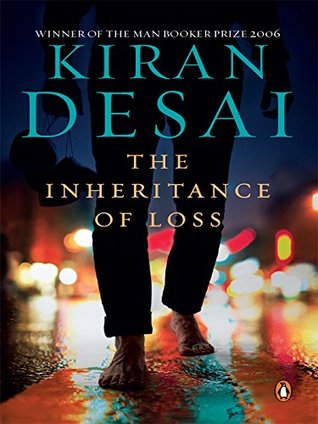More on this book
Community
Kindle Notes & Highlights
My name is someone and anyone. I walk slowly, like one who comes from so far away he doesn’t expect to arrive.
Could fulfillment ever be felt as deeply as loss? Romantically she decided that love must surely reside in the gap between desire and fulfill-ment, in the lack, not the contentment. Love was the ache, the anticipation, the retreat, everything around it but the emotion itself.
It was an awful thing, the downing of a proud man. He might kill the witness.
A great amount of warring, betraying, bartering had occurred; between Nepal, England, Tibet, India, Sikkim, Bhutan; Darjeeling stolen from here, Kalimpong plucked from there—despite, ah, despite the mist charging down like a dragon, dissolving, undoing, making ridiculous the drawing of borders.
Time might have died in the house that sat on the mountain ledge, its lines grown indistinct with moss, its roof loaded with ferns, but with each letter, the cook trundled toward the future.
There was age in his temperament, his kettle, his clothes, his kitchen, his voice, his face, in the undisturbed dirt, the undisturbed settled smell of a lifetime of cooking, smoke, and kerosene.
The system might be obsessed with purity, but it excelled in defining the flavor of sin.
Never again would he know love for a human being that wasn’t adulterated by another, contradictory emotion.
No fruit dies so vile and offensive a death as the banana,
Jemu picked up the package, fled to the deck, and threw it overboard. Didn’t his mother think of the inappropriateness of her gesture? Undignified love, Indian love, stinking, unaesthetic love—the monsters of the ocean could have what she had so bravely packed getting up in that predawn mush.
The solitude became a habit, the habit became the man, and it crushed him into a shadow.
He realized truth was best looked at in tiny aggregates, for many baby truths could yet add up to one big size unsavory lie.
Round and fat she was in the spoons, long and thin in the knives, pocked by insects and tiddlers in the pond; golden in one light, ashen in another; back then to the mirror; but the mirror, fickle as ever, showed one thing, then another and left her, as usual, without an answer.
“Time should move,” Noni had told her. “Don’t go in for a life where time doesn’t pass, the way I did. That is the single biggest bit of advice I can give you.”
One’s involvement in other peoples’ lives gave one numerous small opportunities for importance.
You lived intensely with others, only to have them disappear overnight, since the shadow class was condemned to movement. The men left for other jobs, towns, got deported, returned home, changed names. Sometimes someone came popping around a corner again, or on the subway, then they vanished again. Adresses, phone numbers did not hold. The emptiness Biju felt returned to him over and over, until eventually he made sure not to let friendships sink deep anymore.
The men sat unbedding their rage, learning, as everyone does in this country, at one time or another, that old hatreds are endlessly retrievable.
(What amazing hope the audience has—always refusing to believe the nonexistence of romance.)
They belonged to this emotion more than to themselves, experienced rage with enough muscle in it for entire nations coupled in hate.
Somebody in one of the kitchens of Biju’s past had said: “It could not be so hard or there would not be so many of you here.”
“Stay there as long as you can,” the cook had said. “Stay there. Make money. Don’t come back here.”
The fact was that one was left empty-handed. There was no system to soothe the unfairness of things; justice was without scope; it might snag the stealer of chickens, but great evasive crimes would have to be dismissed because, if identified and netted, they would bring down the entire structure of so-called civilization. For crimes that took place in the monstrous dealings between nations, for crimes that took place in those intimate spaces between two people without a witness, for these crimes the guilty would never pay. There was no religion and no government that would relieve the hell.
The man with the white curly wig and a dark face covered in powder, bringing down his hammer, always against the native, in a world that was still colonial.
Suddenly, after this there was nothing more to say, for while the emotion was there, the conversation was not; one had bloomed, not the other, and they fell abruptly into emptiness.
After the initial excitement was over, it often became obvious that the love was gone; for affection was only a habit after all, and people, they forgot, or they became accustomed to its absence. They returned and found just the facade;
In this life, he remembered again, you must stop your thoughts if you wished to remain intact, or guilt and pity would take everything from you, even yourself from yourself.
He didn’t think of any of the things that had made him leave in the first place.
This was how history moved, the slow build, the quick burn, and in an incoherence, the leaping both backward and forward, swallowing the young into old hate. The space between life and death, in the end, too small to measure.


